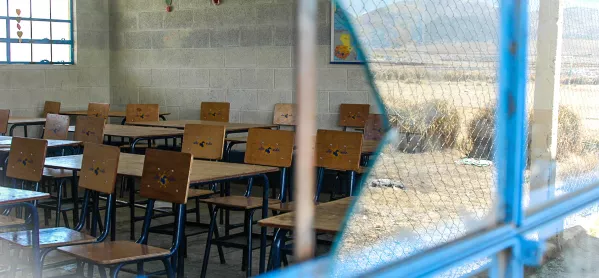Major investment in buildings and SEND needed, warns PAC

Major investment is needed to improve the state of the country’s school buildings and special educational needs provision, a public spending watchdog has warned.
In her annual report, the chair of the Commons Public Accounts Committee (PAC), Dame Meg Hillier, highlights a series of problems caused by a “lack of forward thinking” by government that now require essential spending.
The report describes these problems as “big nasties”, and they include both the school estate and special educational needs and disabilities (SEND) provision.
Dame Meg, who is Labour MP for Hackney South and Shoreditch, says in her report that a lack of long-term investment has resulted in over 700,000 pupils learning in schools that need major rebuilding or refurbishment. She adds that 38 per cent of school buildings are beyond their initial design life.
Funding needed for school buildings
The PAC report states: “The Department for Education does not have a good enough understanding of safety risks, including asbestos and reinforced autoclaved aerated concrete (RAAC), across school buildings for it to fully quantify and mitigate them.”
The committee chair says this is the “consequence of a deficit of long-term infrastructure planning”.
“Problems with RAAC and asbestos have shown that, without a long-term plan, there is a huge impact when a problem crystalises,” the report adds.
Dame Meg says the government needs to invest in order to save money in the future, rebuilding schools before they are unsafe and very costly to refurbish.
More than 100 schools affected by RAAC will be rebuilt under the School Rebuilding Programme, though the DfE is behind schedule in awarding contracts for the programme.
- PAC: MPs “extremely concerned” over school building safety
- Concrete crisis: RAAC heads call for timescale on rebuilding plans
- SEND support: Two-thirds of special schools full amid crisis
The DfE must now work to mitigate concerns about building safety and produce plans to deal with the condition of school buildings, the chair says.
The DfE had recommended that £5.3 billion was needed annually in capital funding in its 2020 Spending Review case. It was allocated £3.1 billion by the Treasury, the report notes.
Last year PAC said it was “very concerned” about the safety of school buildings and the DfE’s lack of answers to its questions about buildings.
SEND warning
SEND support is also identified as a major problem in today’s PAC report.
Dame Meg highlights that primary and secondary schools are struggling to cope with numbers of pupils with SEND, despite 81.3 per cent of local authorities overspending their high-needs budget in 2017-18.
If this problem is not addressed, pupils with SEND will remain in a “postcode lottery”, with many unable to receive the same education as their peers, she warns.
The National Audit Office estimated that the DfE would need £9.4 billion in funding to support pupils with SEND in 2018-19.
Children with SEND not getting the appropriate support “is a failure that damages their education, wellbeing and future life chances”, Dame Meg writes.
Leaders across the sector have called for an increase in SEND funding, including Robin Walker, chair of the Commons Education Select Committee.
The Commons Levelling Up, Housing and Communities Select Committee also warned in February that local authorities needed more funding to meet the rise in demand for SEND support.
Responding to the report, a Department for Education spokesperson said: “These figures are inaccurate. In just a matter of months we have completed our identification programme and confirmed how we will fund removal of RAAC from our schools and colleges for good.
“The department is outperforming expectations in completing construction projects where contracts are awarded and since 2015 we’ve invested over £17 billion to enhance school buildings, in addition to transforming over 500 schools across England through the School Rebuilding Programme.”
Tes understands that the DfE believes it is inaccurate to say that 700,000 pupils are in unsafe schools. This figure is based on the total number of pupils in schools nominated to the School Rebuilding Programme in 2022 by responsible bodies.
For the latest education news and analysis delivered directly to your inbox every weekday morning, sign up to the Tes Daily newsletter
Keep reading for just £1 per month
You've reached your limit of free articles this month. Subscribe for £1 per month for three months and get:
- Unlimited access to all Tes magazine content
- Exclusive subscriber-only stories
- Award-winning email newsletters



